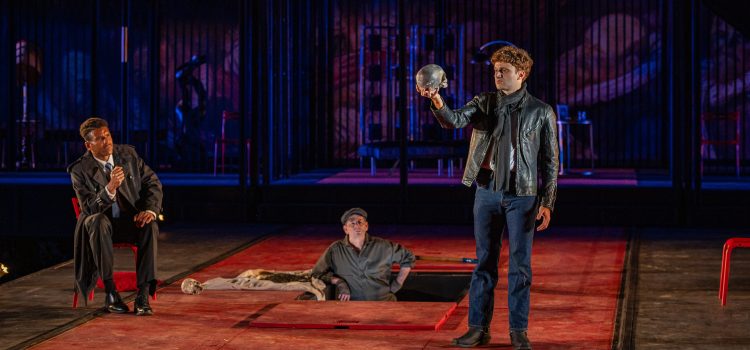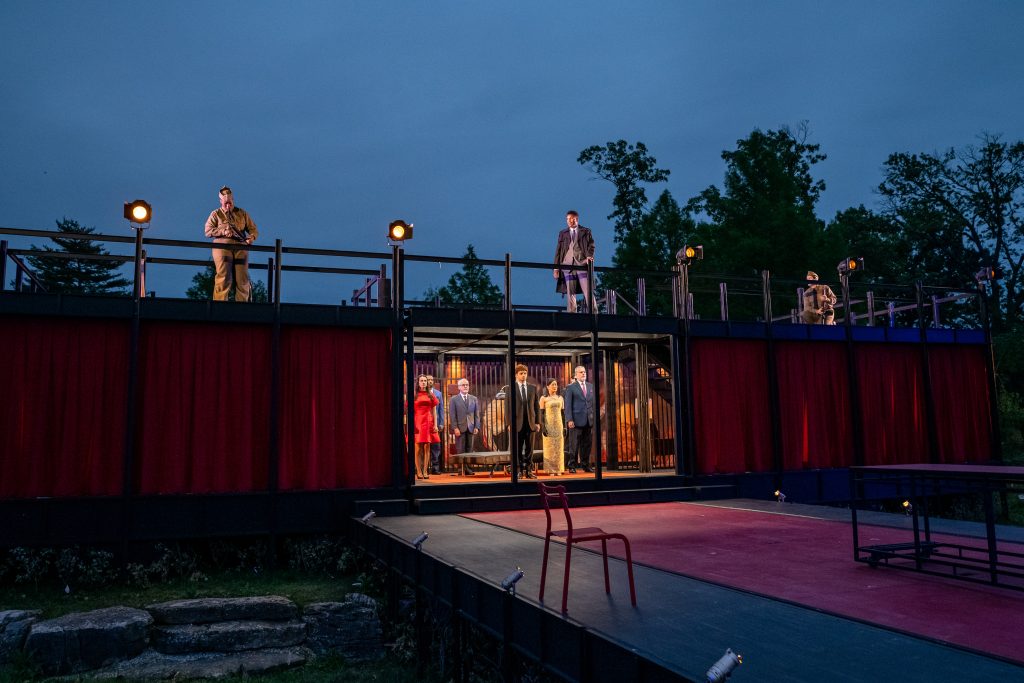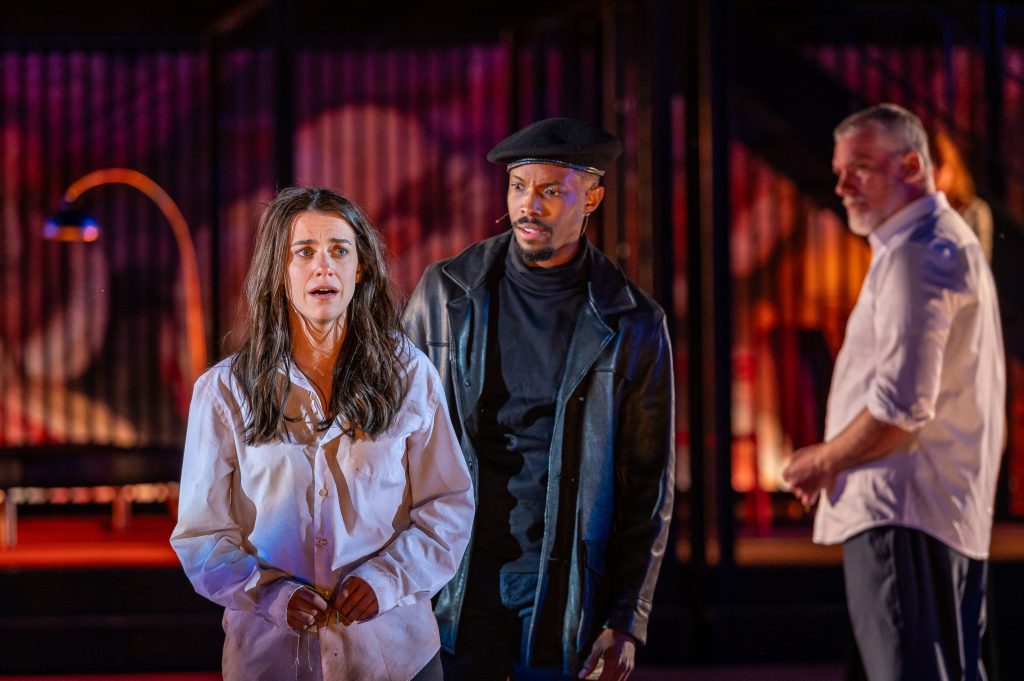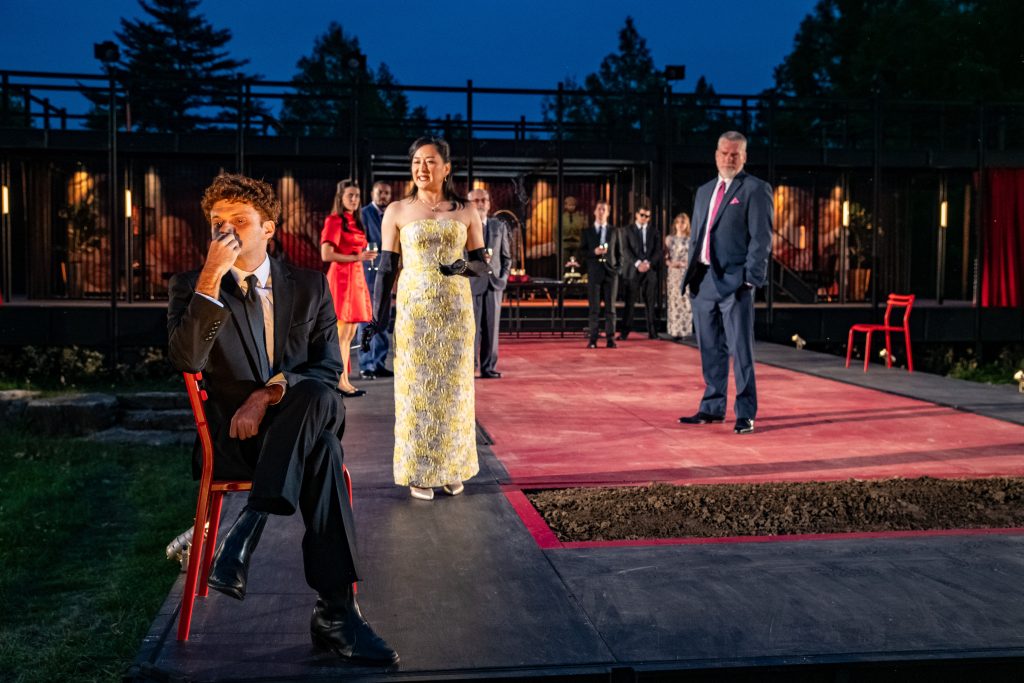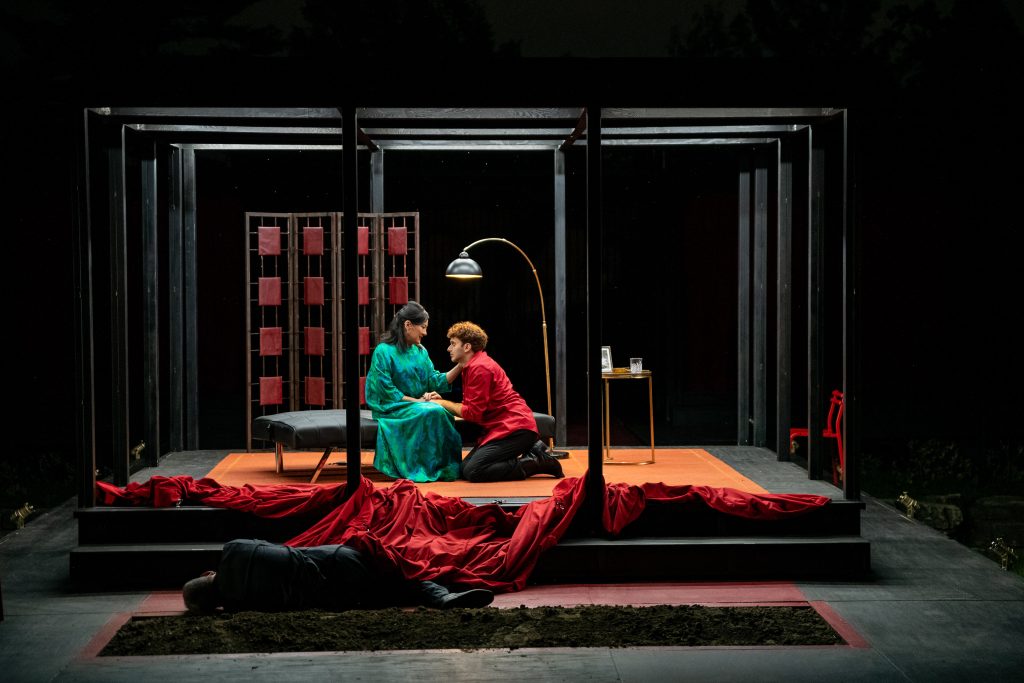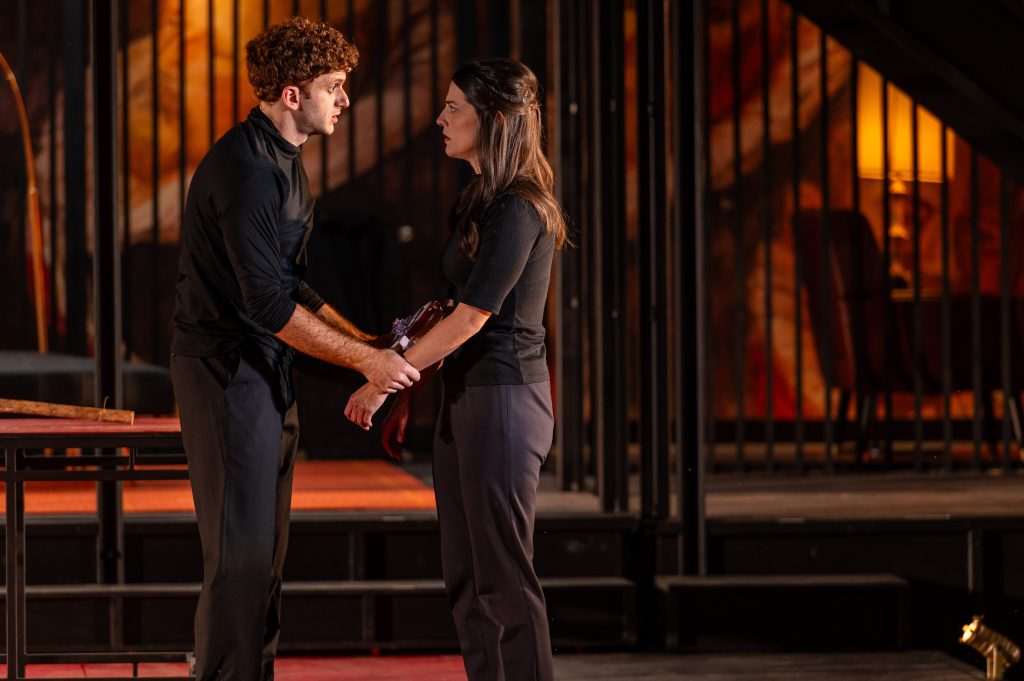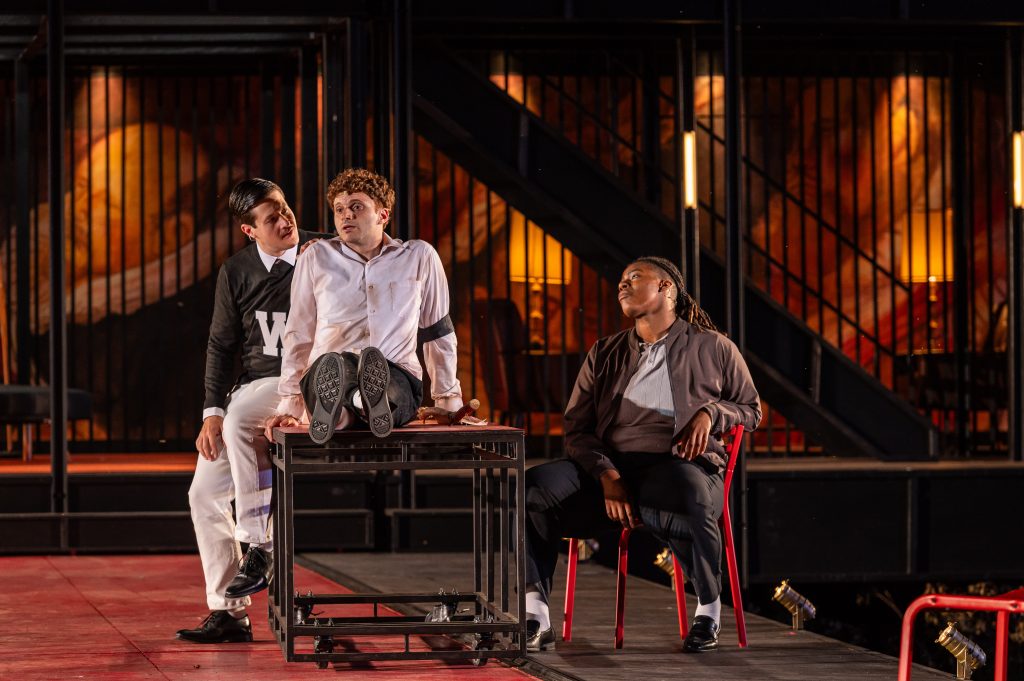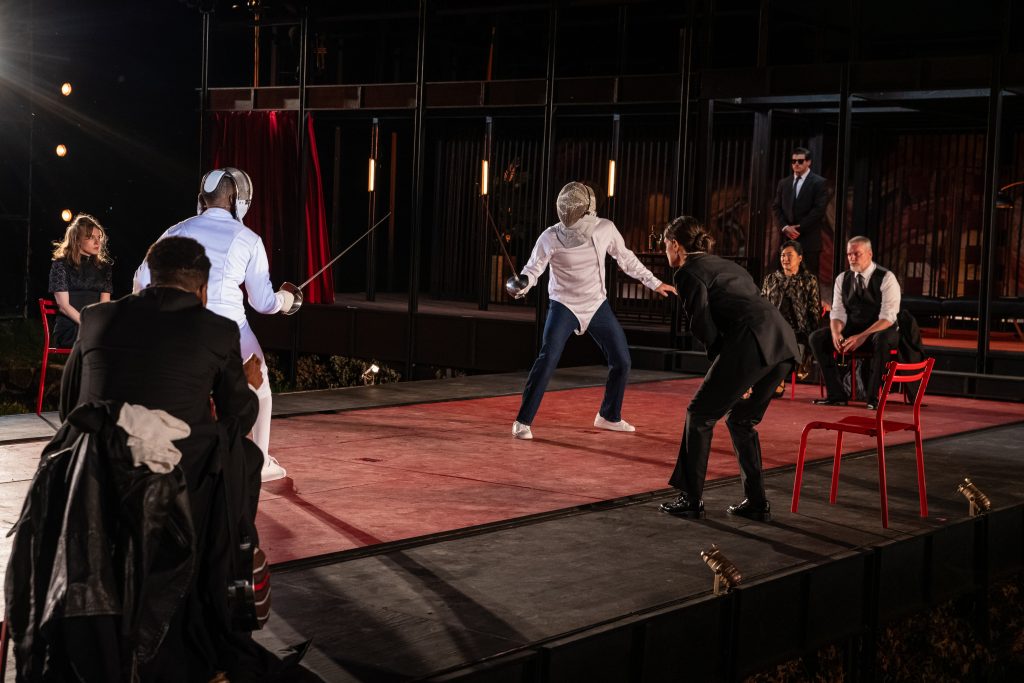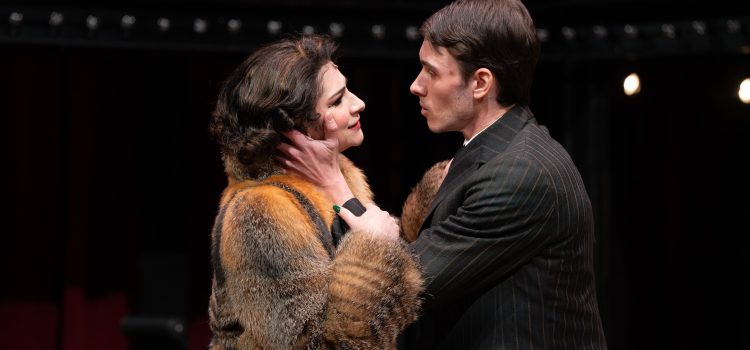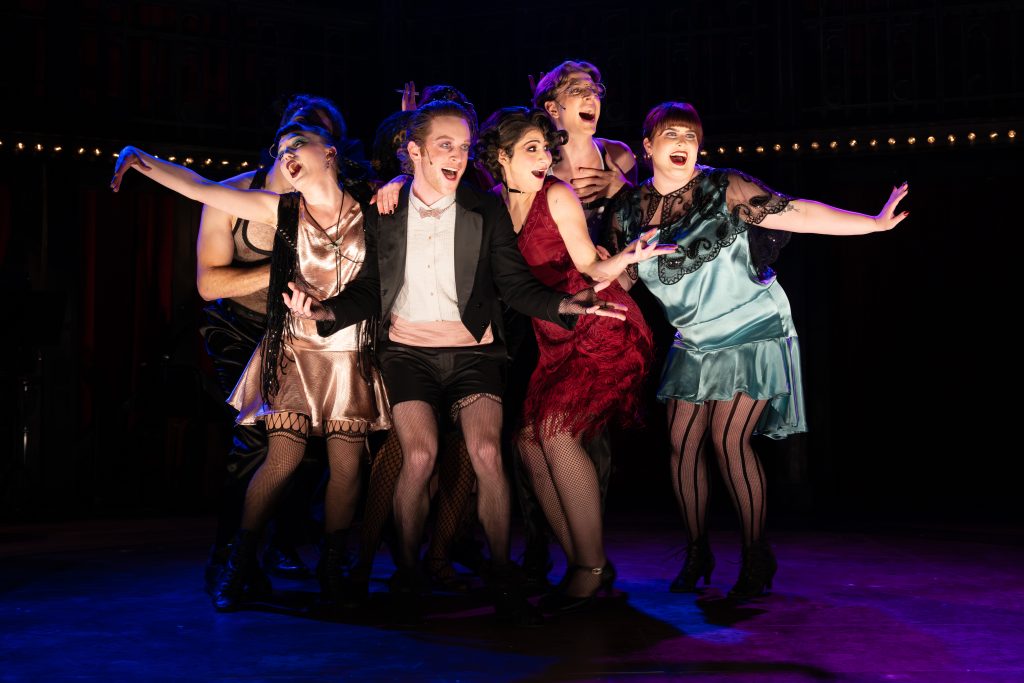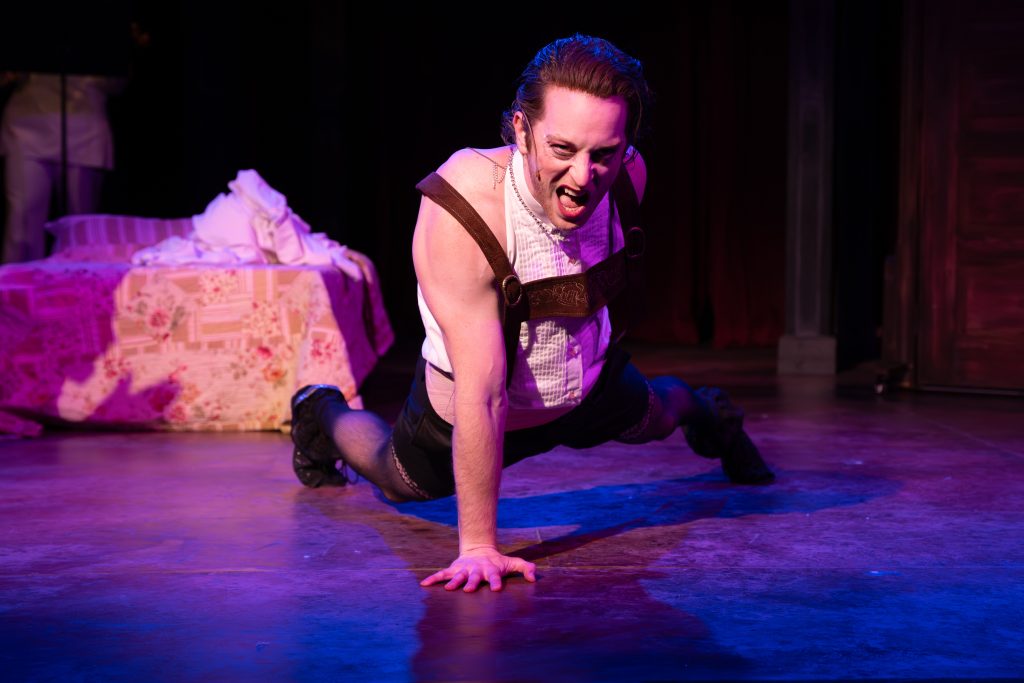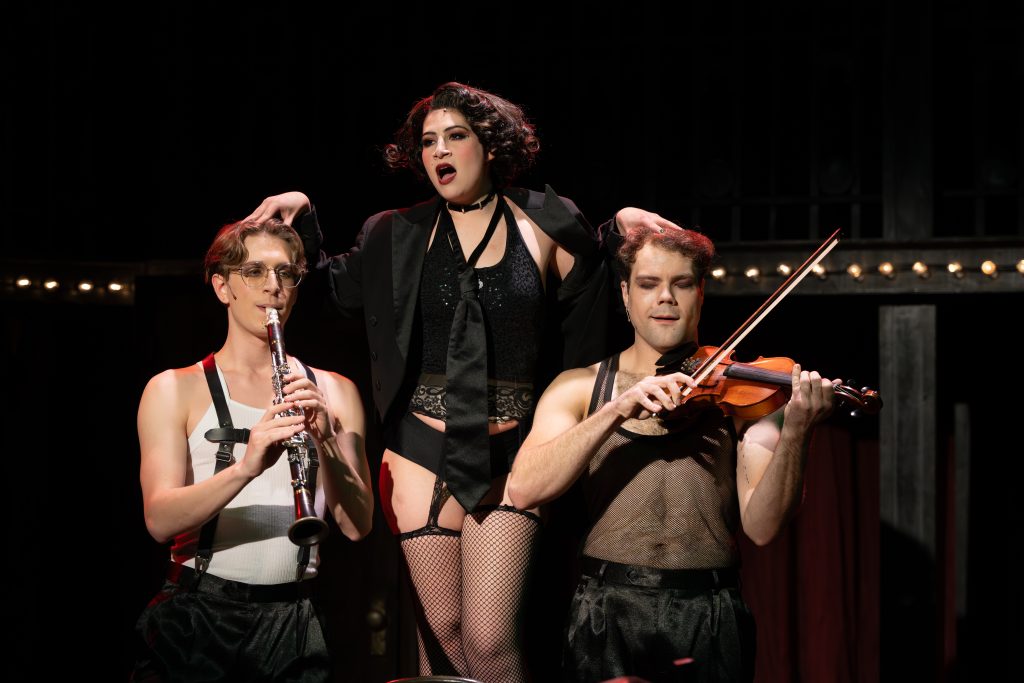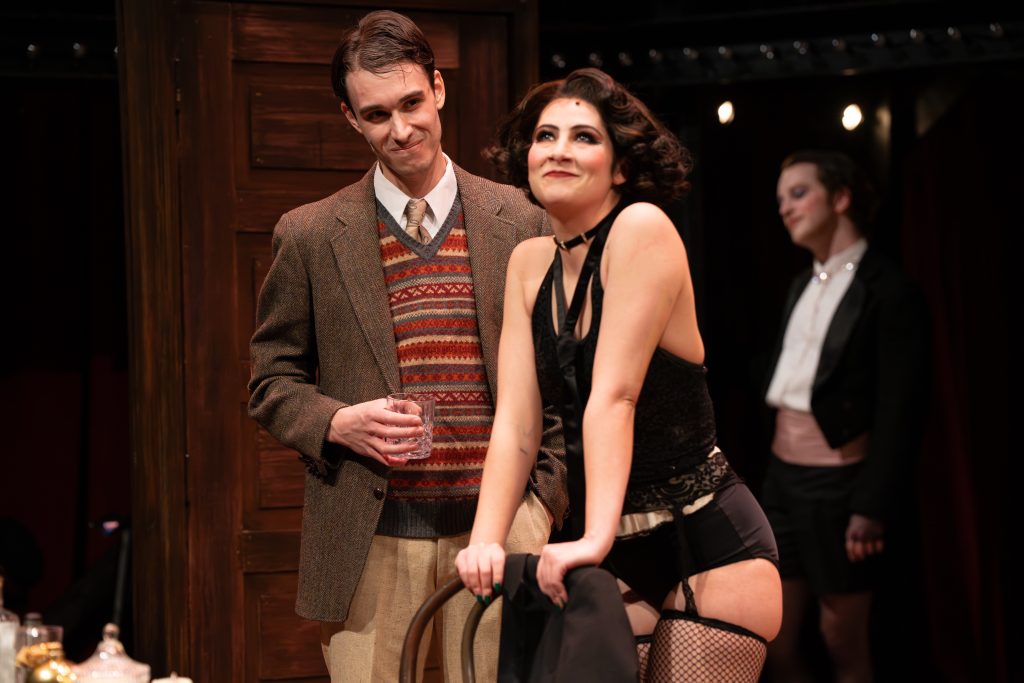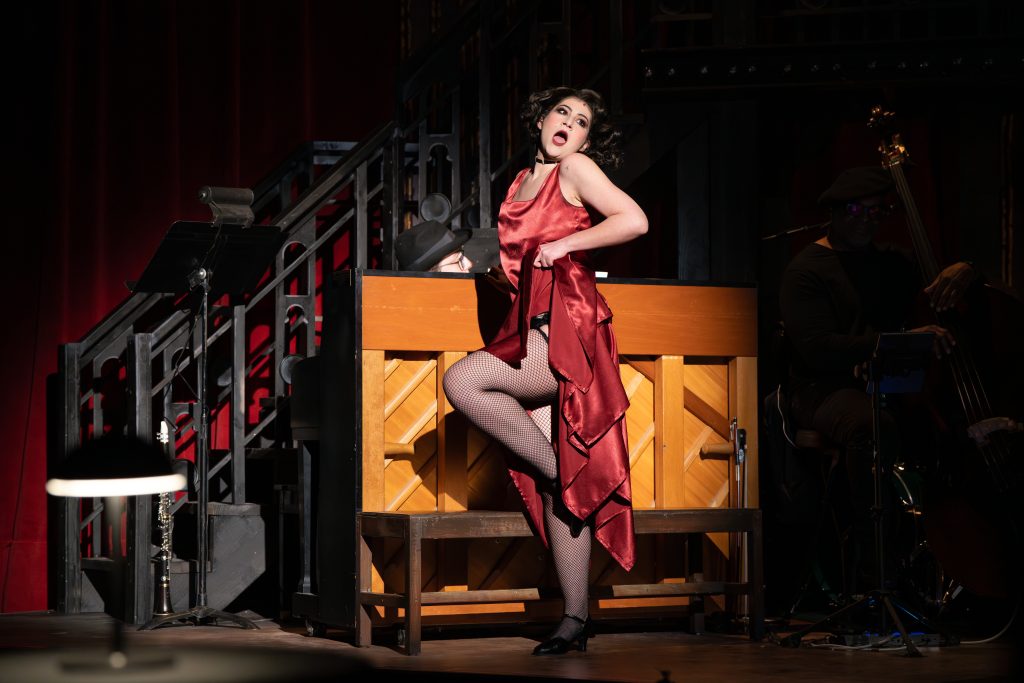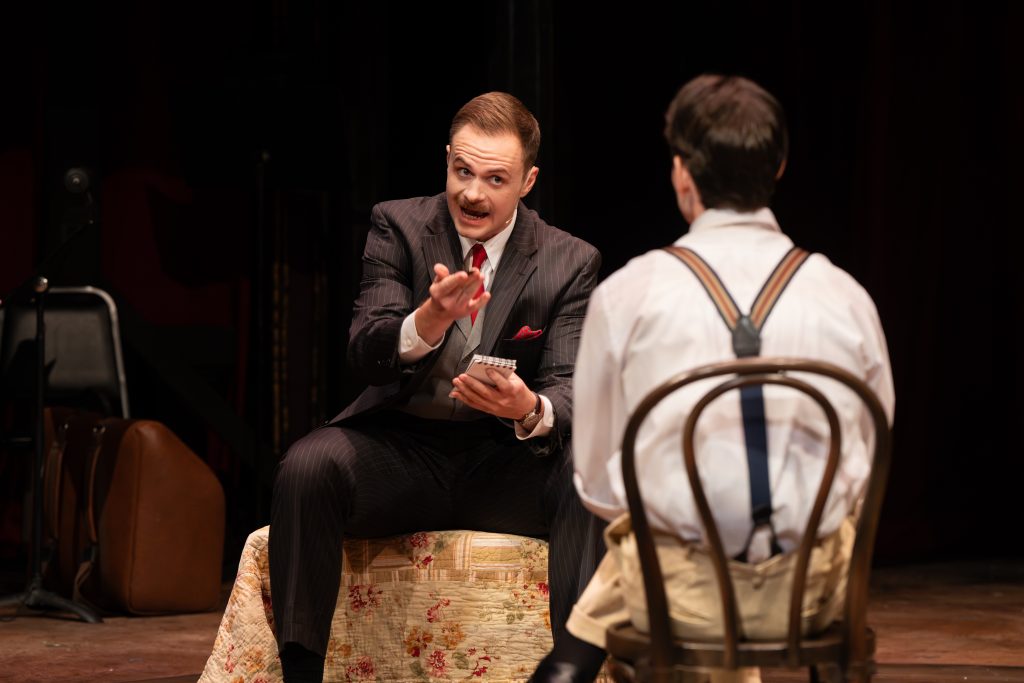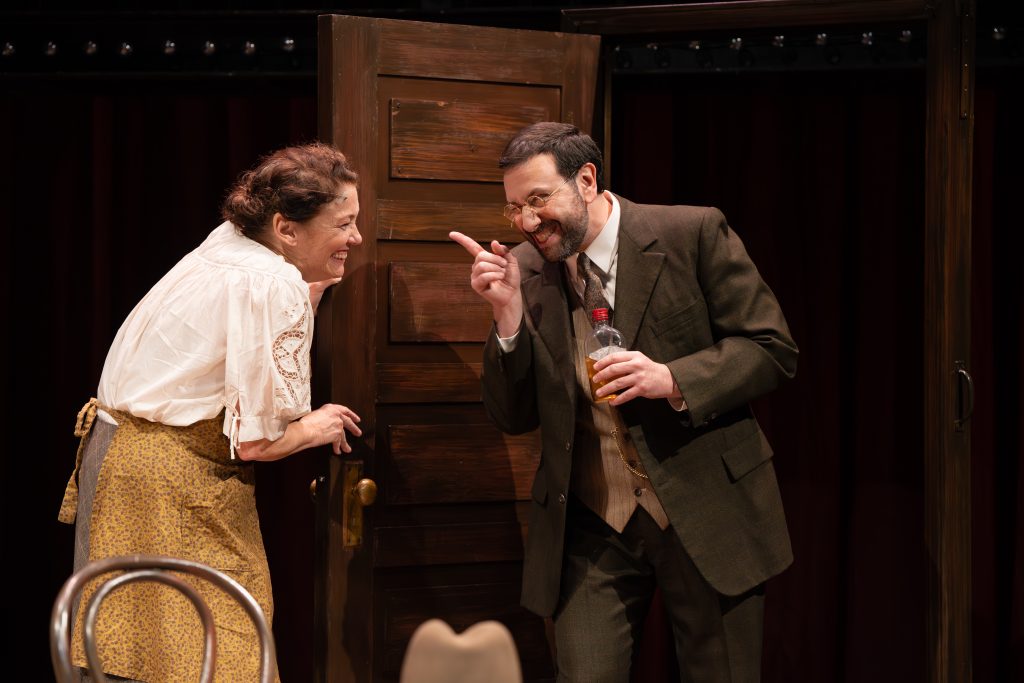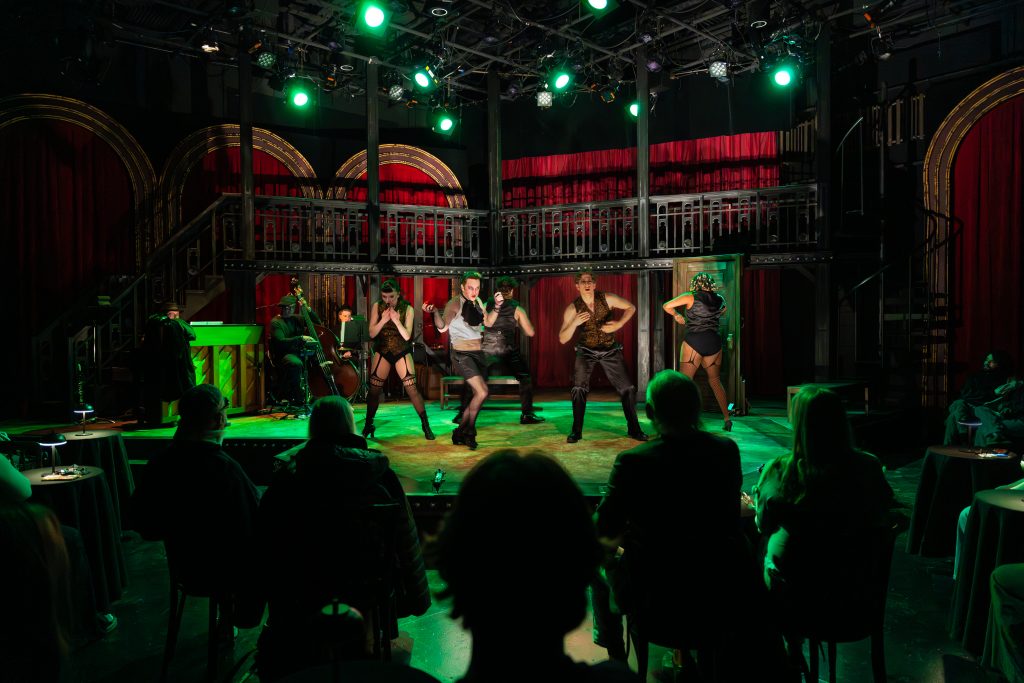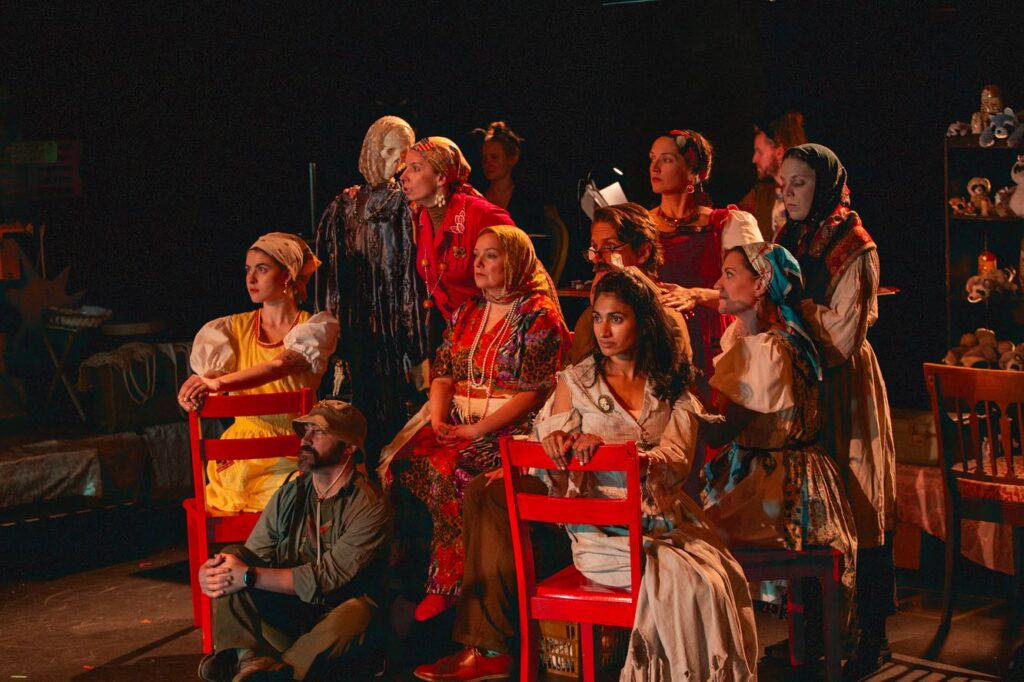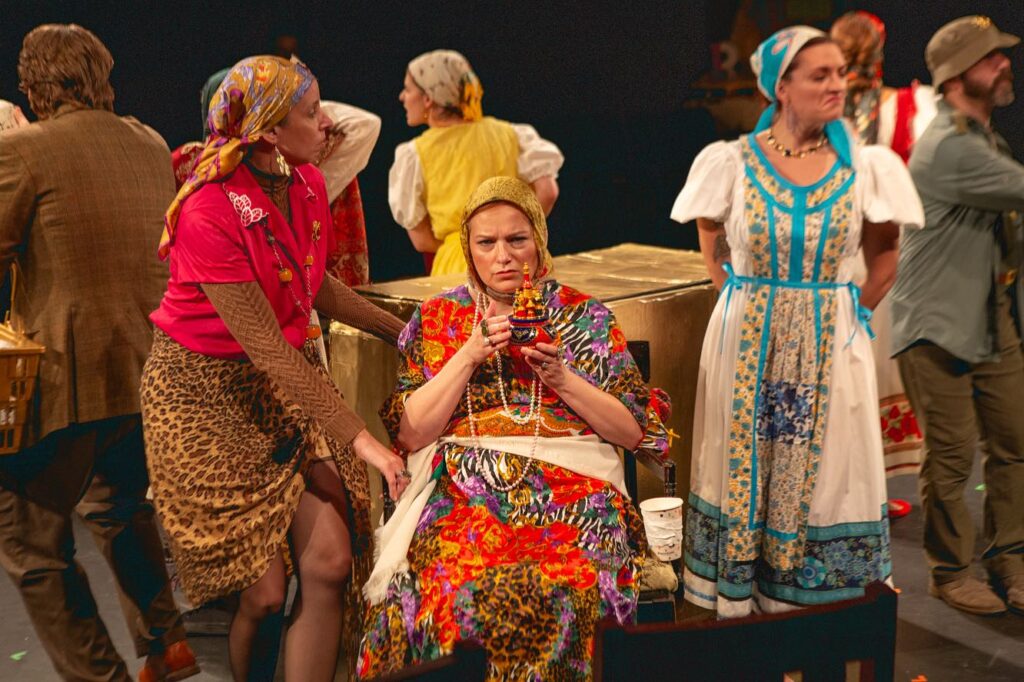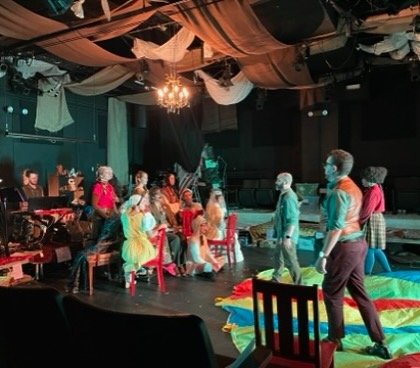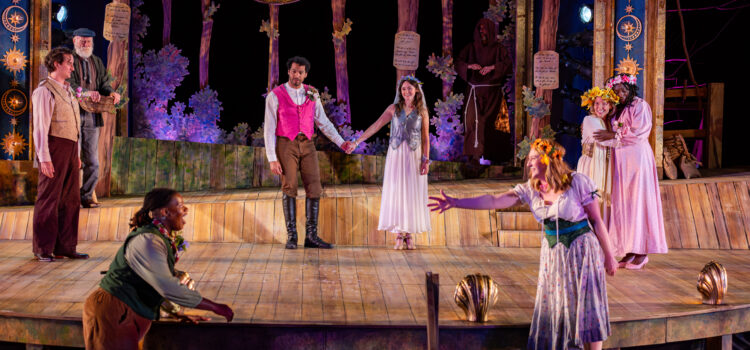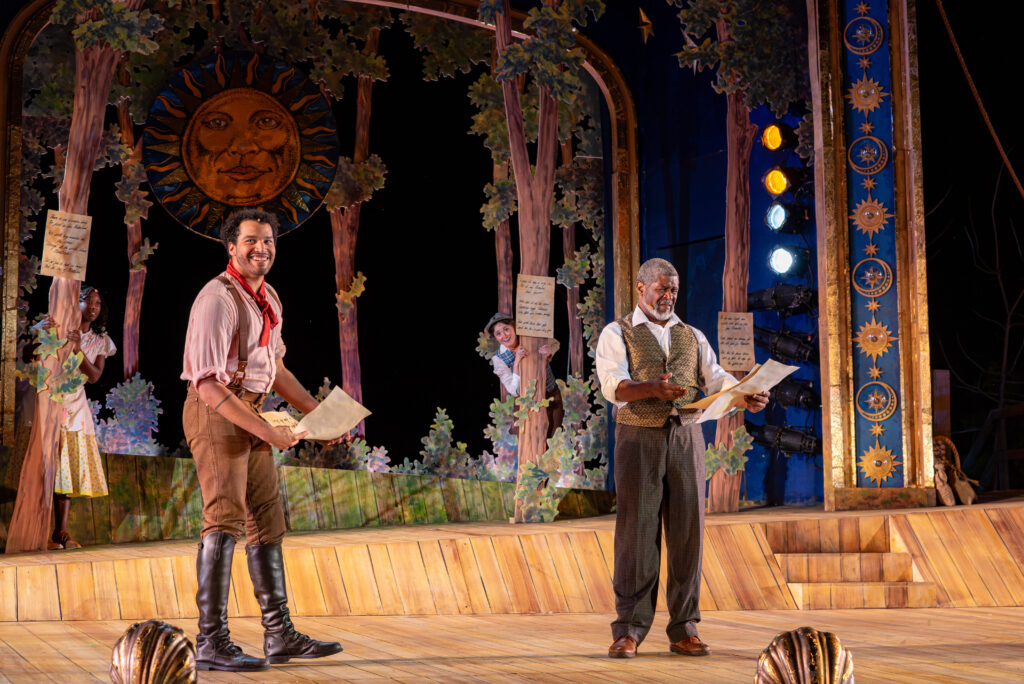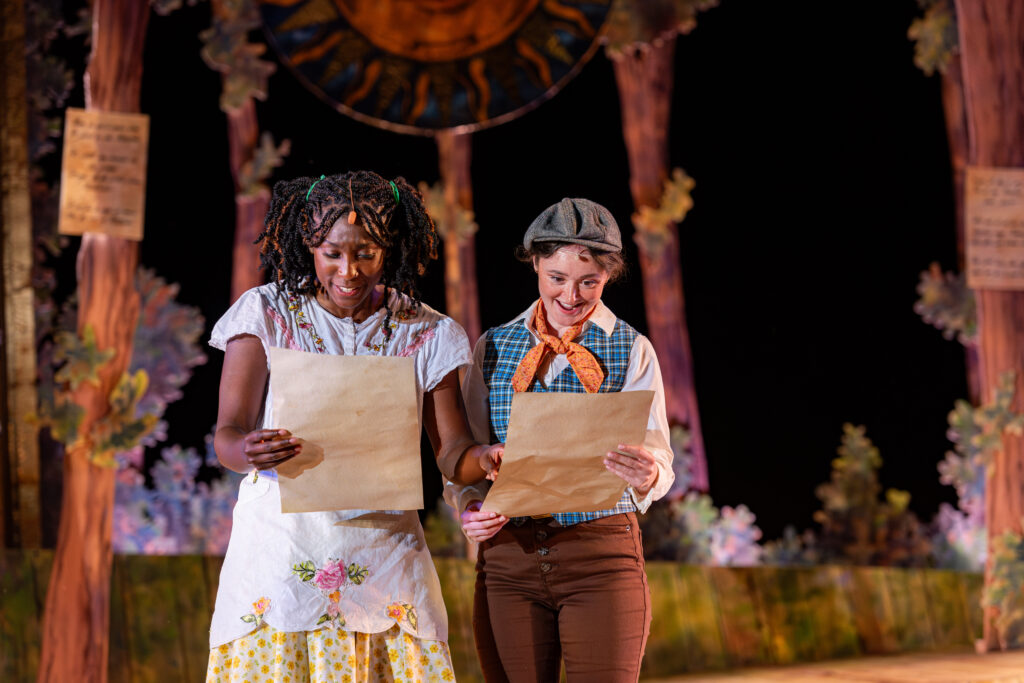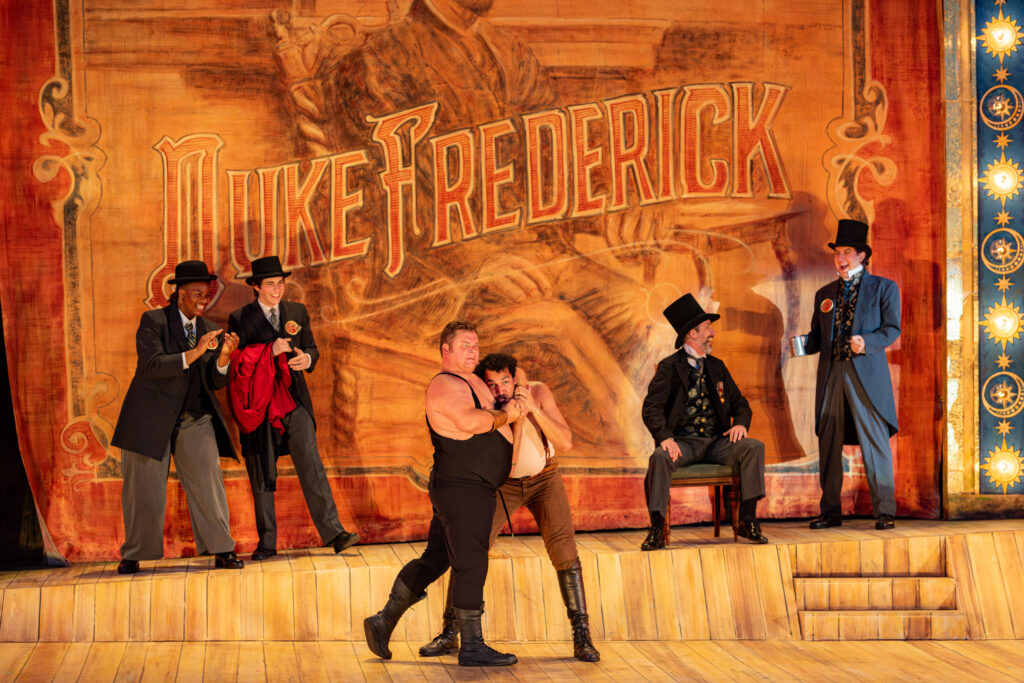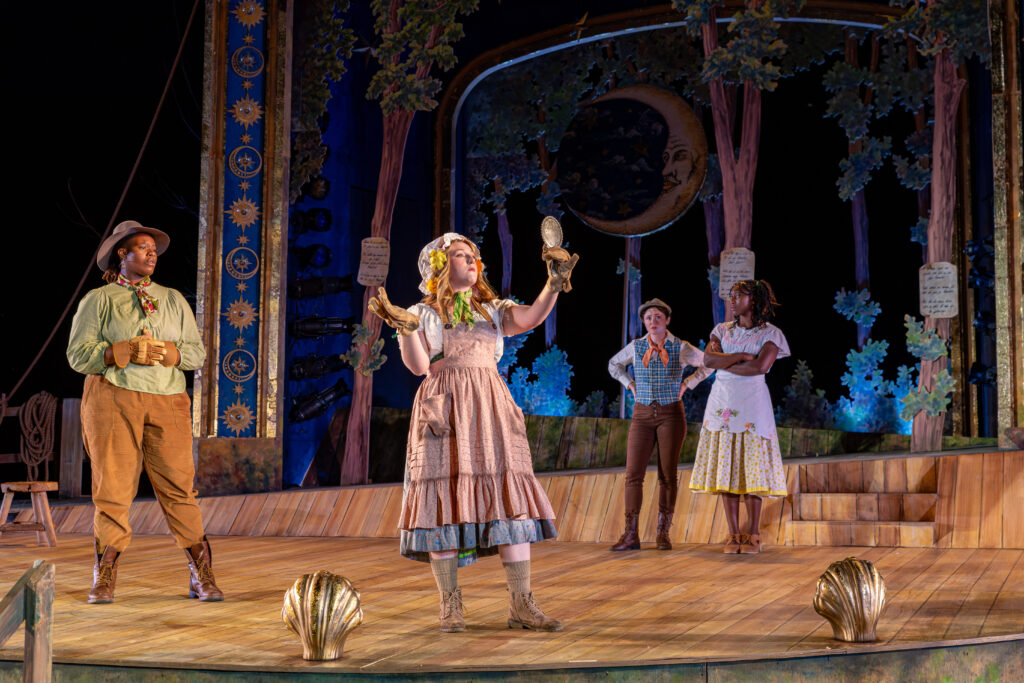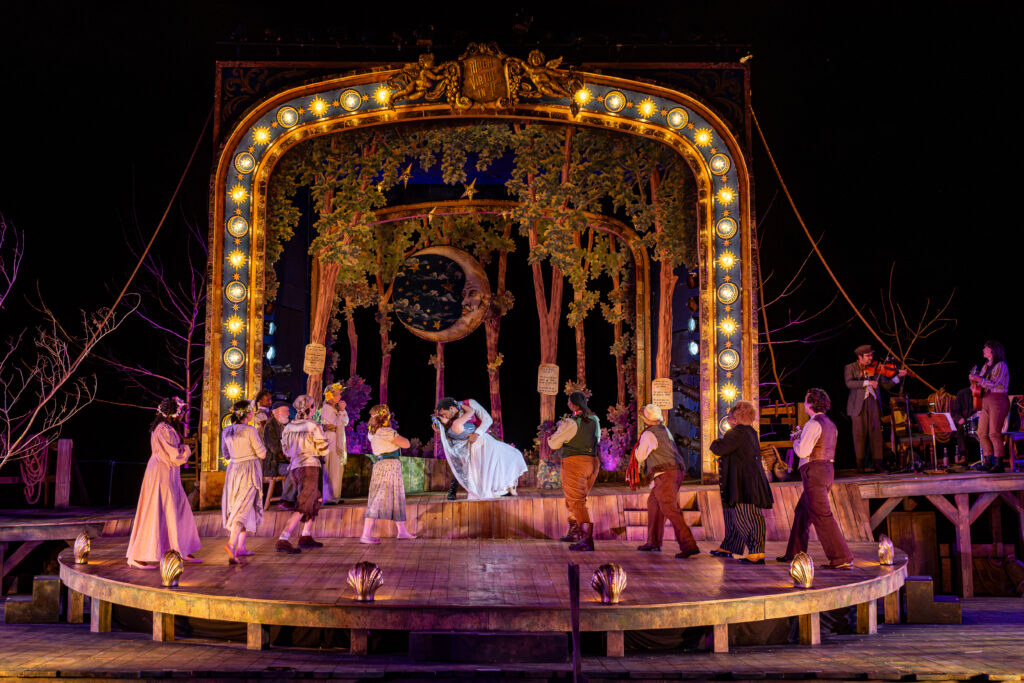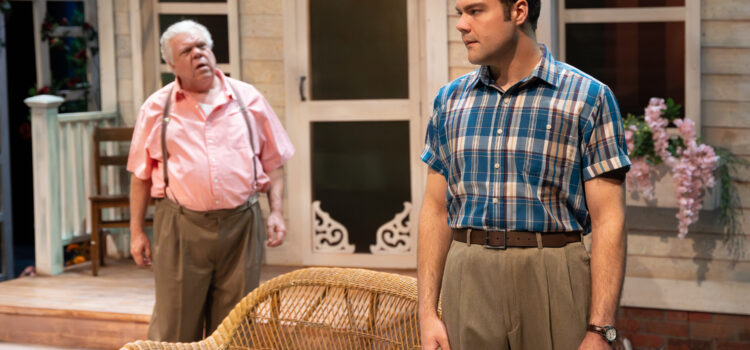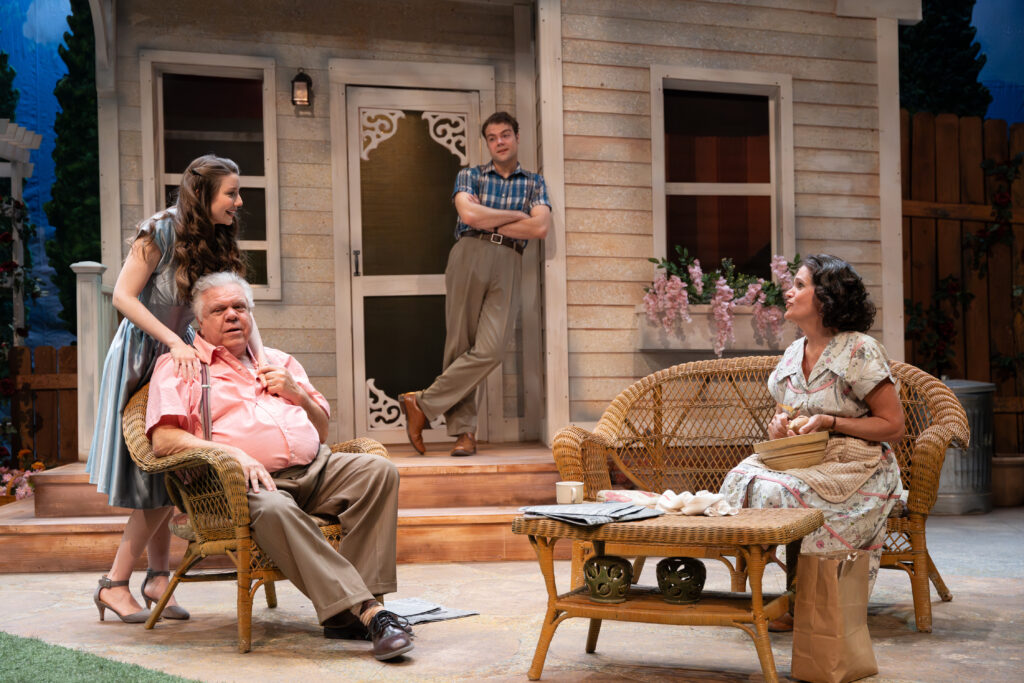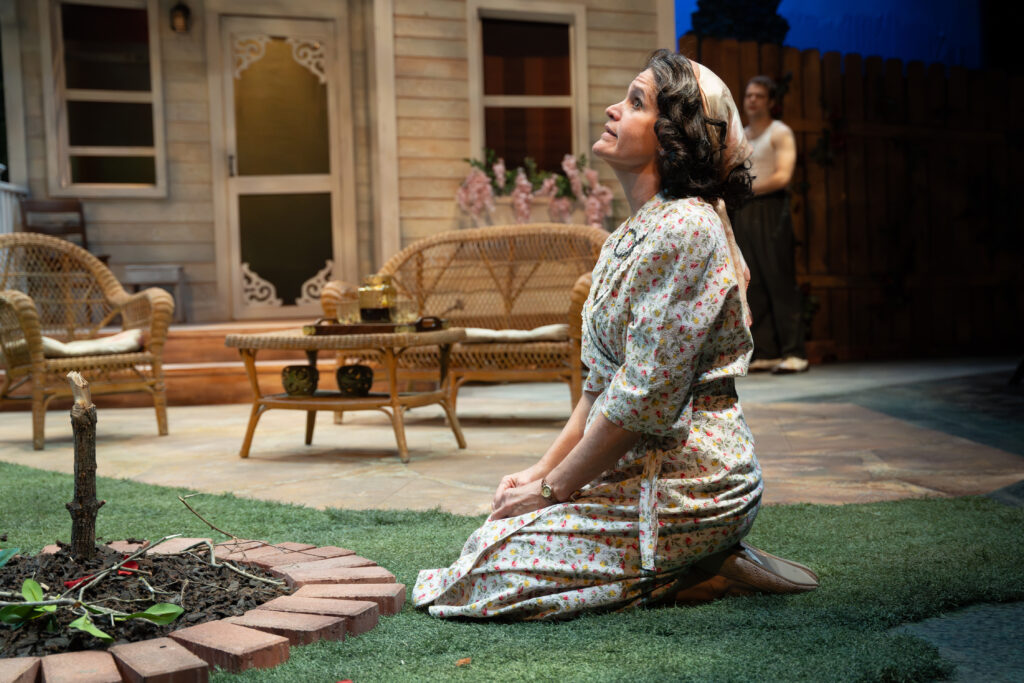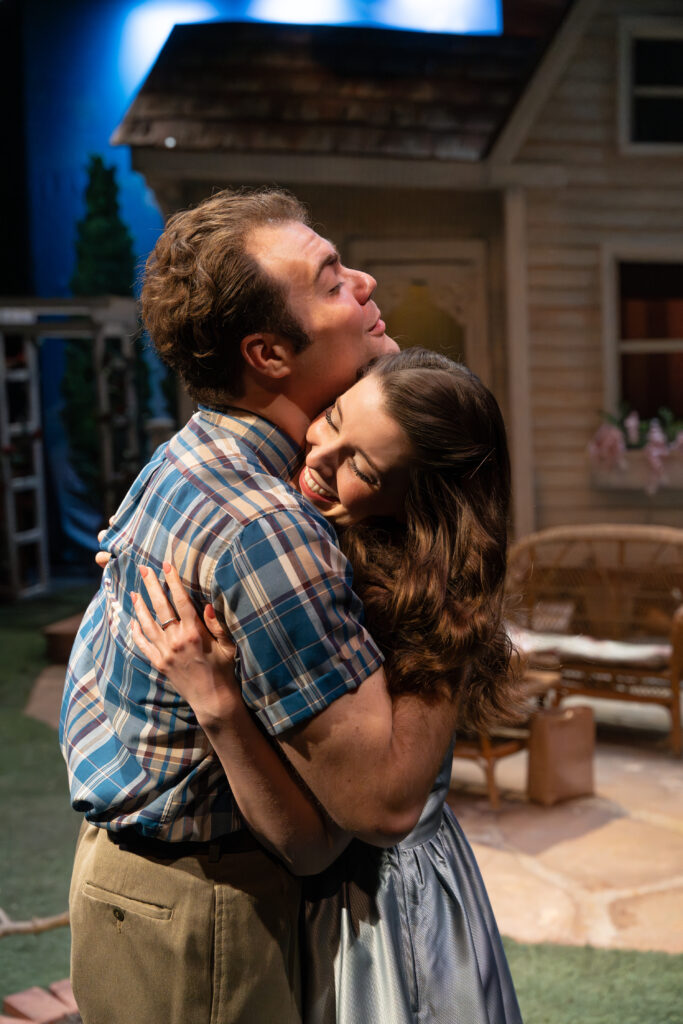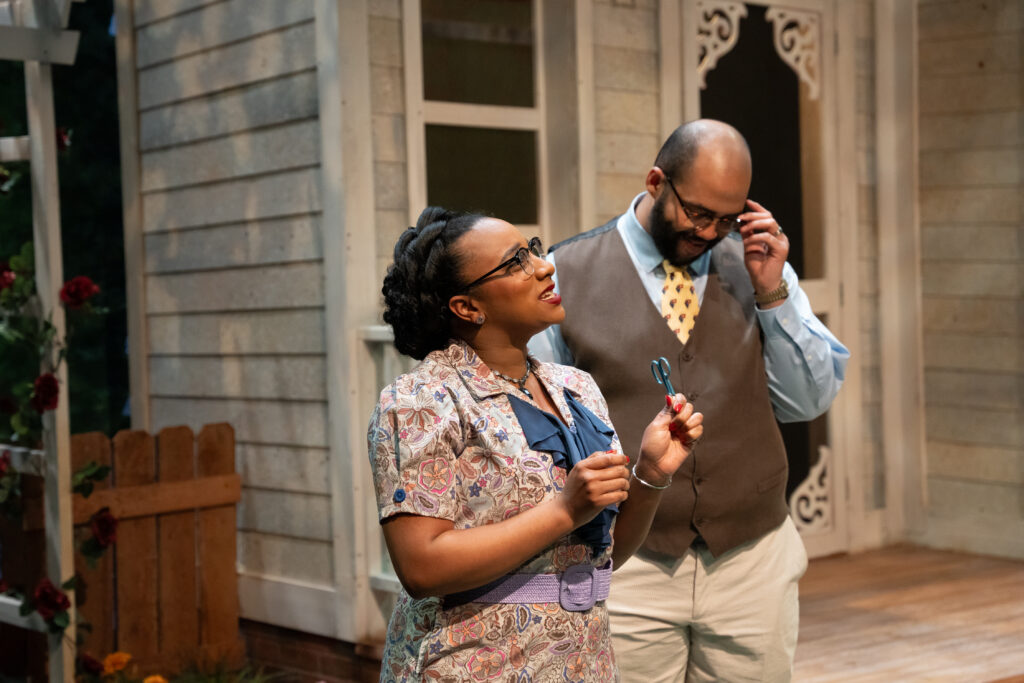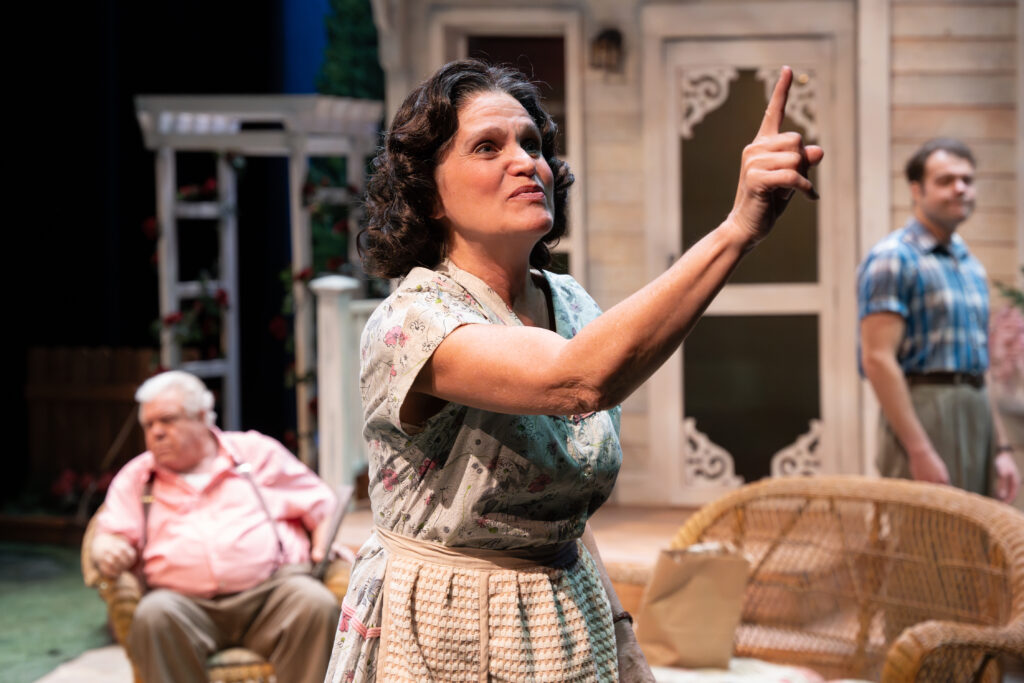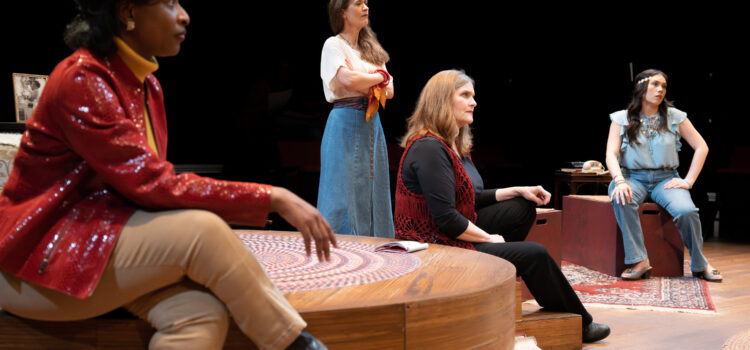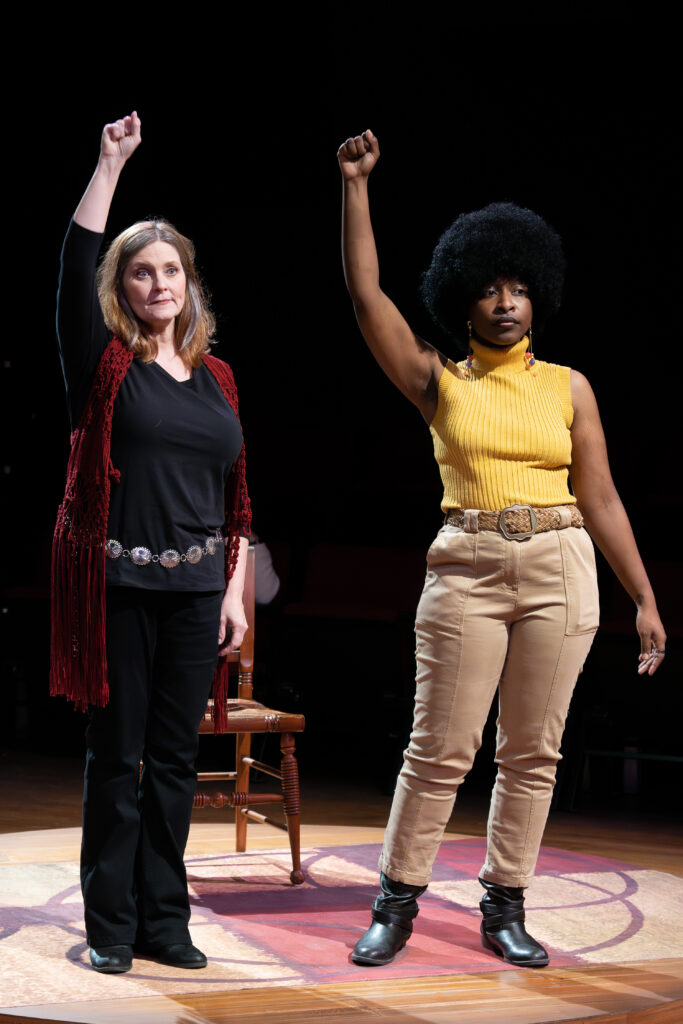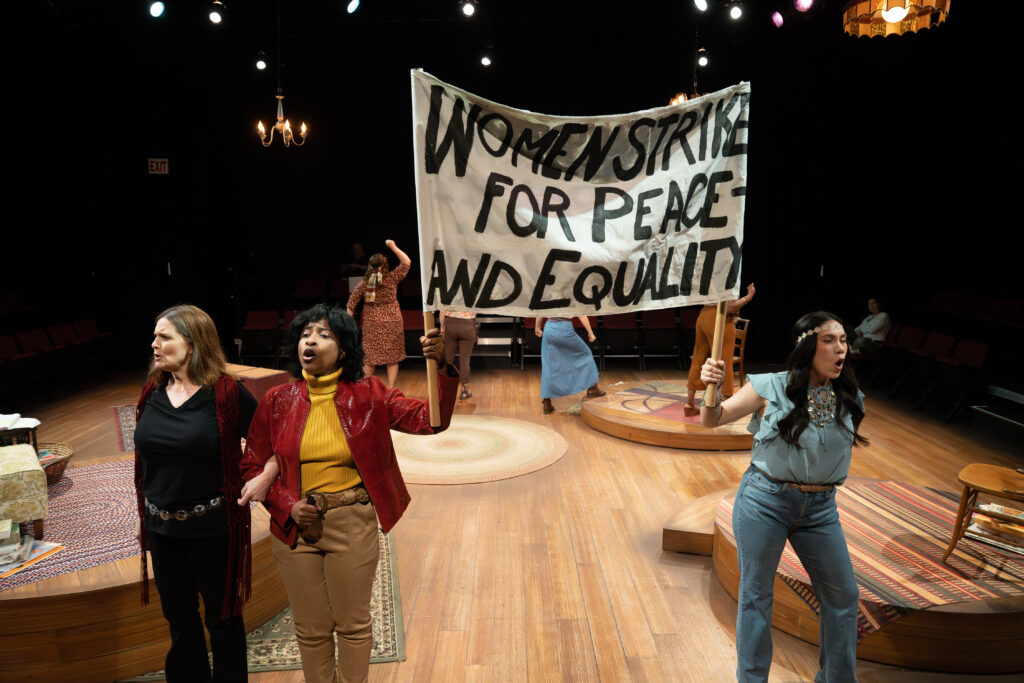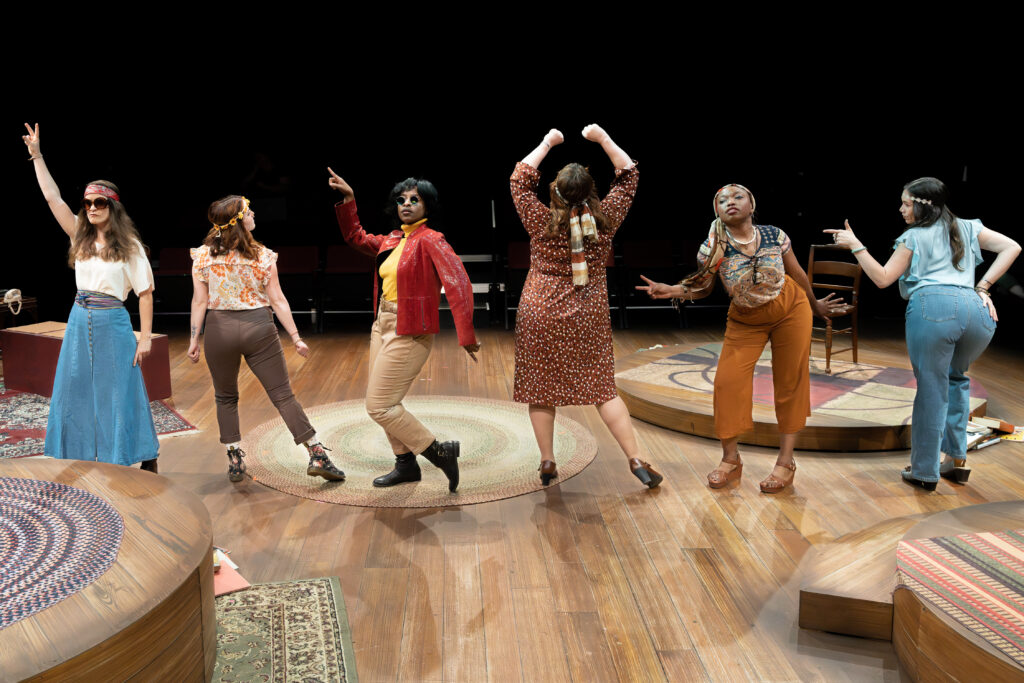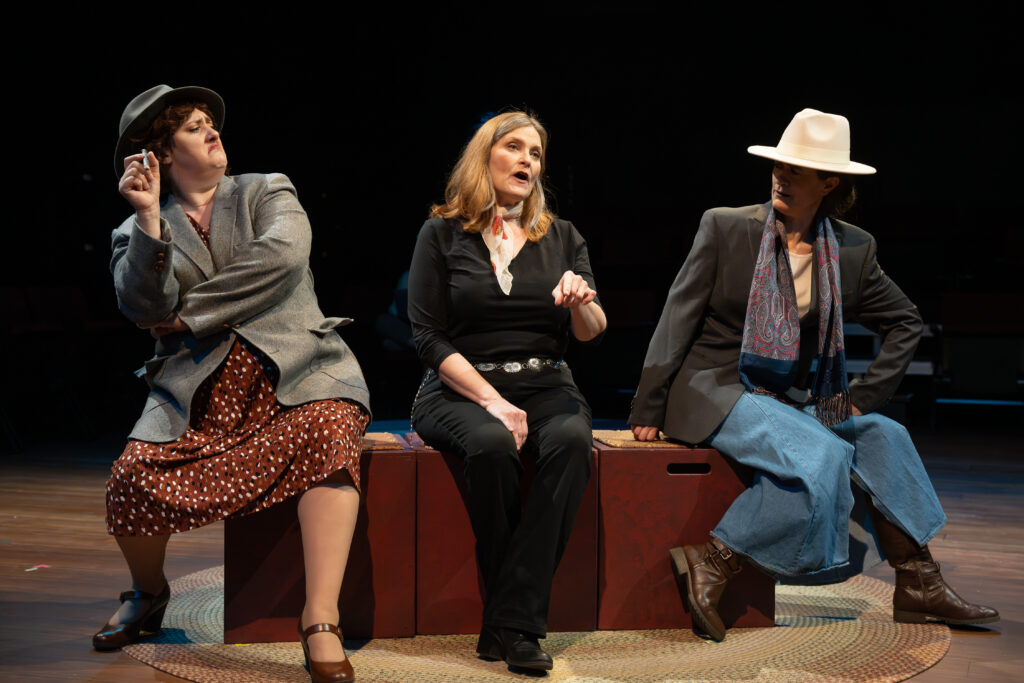By Lynn Venhaus
A very special comedy, “Myth of the Ostrich,” is an absolute laugh riot, thanks to the triple treat of actresses who deliver heartfelt and hilarious portrayals of three distinct personalities, aided by the deft direction of Jane Paradise.
In Upstream Theater’s U.S. premiere of Canadian playwright Matt Murray’s playful and poignant story of assumptions, first impressions and flipping broad stereotypes, this Dream Team works smoothly in tandem.
For 90 minutes, the action-packed, chatty narrative is a marvel of physical slapstick, sharp timing, and landing punch lines effortlessly. But it also has something to say about understanding our differences with empathy and forging the unlikeliest connections, which is a timely takeaway.
As Holly, a harried single mom writer, Wendy Renee Greenwood is expecting her best friend Cheryl (Pamela Reckamp) to stop by her humble Boston abode. They’re both loud and messy, with Cheryl the more unfiltered and free-spirited, with a typical ‘Southie’ accent, but Holly seems a more level-headed voice of reason, not as impulsive as Cheryl..

Reckamp and Greenwood have an easy chemistry together, appearing naturally as friends who’ve known each other for a long time. They start off with a condescending, flippant tone as they listen to Pam talk about herself. But they’re not caricatures, and that’s a sincere development between these three.
Jennelle Gilreath Owens, who often stands out on local stages, adept at comedy, drama and musicals, is a revelation as Pam, a transplant from a small town in Wisconsin who is a sheltered stay-at-home mom. She nails this character, in her ‘Minnesota Nice’ accent, proper appearance and social grace. She must convey confusion, vulnerability, fear and anxiety while portraying a more relaxed, comical side because of things beyond her control.
Pam comes by unannounced to introduce herself because she found a note her son Evan wrote to Holly’s Jody. She wants to talk about the kids, being teens coming of age, and how they spend so much time together.
Pam and Holly are both good moms, no debating that – they care and are concerned – but they have different approaches. Holly is horrified Pam read the note, thinking that’s intrusive. Pam is feeling out of sorts with the move – her husband took a new job with a law firm – and she’s trying to make sense of her son, who seems more distant.

Because of unexpected developments, which is best left as a surprise twist, an afternoon social call turns from polite to raucous for side-splitting laughs. Think Lucy and Ethel plus one, for high-jinks ensue as secrets, lies and tea are spilled.
Murray’s well-constructed script has ebbs and flows, and the discoveries are logical – while the physical element is farce, the dialogue is rich in compassion and wit — and candor. At a time when fear of others is rampant, it’s refreshing to see three very different women learn about each other and overcome prejudice.
Murray’s play, which really deserves more attention from American audiences, was first produced in 2014 at the Toronto Fringe Festival. Grateful to Upstream Artistic Director Philip Boehm for seeing this play at a sold-out performance in Warsaw, Poland, and bringing it here.
During one of the most dismal winters on record, it was a breath of fresh air to be at The Marcelle Theatre Sunday for a sold-out matinee on a day that was below freezing temperatures with a brutal wind chill, warmed by the audience’s gleeful amusement. (After several performances cancelled opening weekend because of heavy snowfall).

The entertaining production is also boosted by expert craftsmen – Denisse Chavez’ always excellent lighting design, Ellie Schwetye’s careful sound design, Michele Friedman Siler’s ideal costume design, and Patrick Huber’s lived-in set design.
The MVP just may be dialect coach Lauren Roth for the actress’ flawless character accents.
The beauty of this play is at first you might not talk to any of these women at the PTA meeting, but after getting to know them, you’d go out for coffee or a beer with them. Come for the laughs, stay for the growth. After all, “Myth of the Ostrich” reminds us that one can’t judge a book by its cover.
And if women who don’t look as put together as another ‘type’ can show you the way, this is a victory for all women and those who follow different beats.
Upstream Theater presents “Myth of the Ostrich” by Canadian playwright Matt Murray, Jan. 29 through Feb. 8. Thursday, Friday and Saturday performances are at 7:30 p.m. and Sunday at 2 p.m. at The Marcelle in Grand Center, 3310 Samuel Shepard Dr. For more information: www.upstreamtheater.org


Lynn (Zipfel) Venhaus has had a continuous byline in St. Louis metro region publications since 1978. She writes features and news for Belleville News-Democrat and contributes to St. Louis magazine and other publications.
She is a Rotten Tomatoes-approved film critic, currently reviews films for Webster-Kirkwood Times and KTRS Radio, covers entertainment for PopLifeSTL.com and co-hosts podcast PopLifeSTL.com…Presents.
She is a member of Critics Choice Association, where she serves on the women’s and marketing committees; Alliance of Women Film Journalists; and on the board of the St. Louis Film Critics Association. She is a founding and board member of the St. Louis Theater Circle.
She is retired from teaching journalism/media as an adjunct college instructor.


